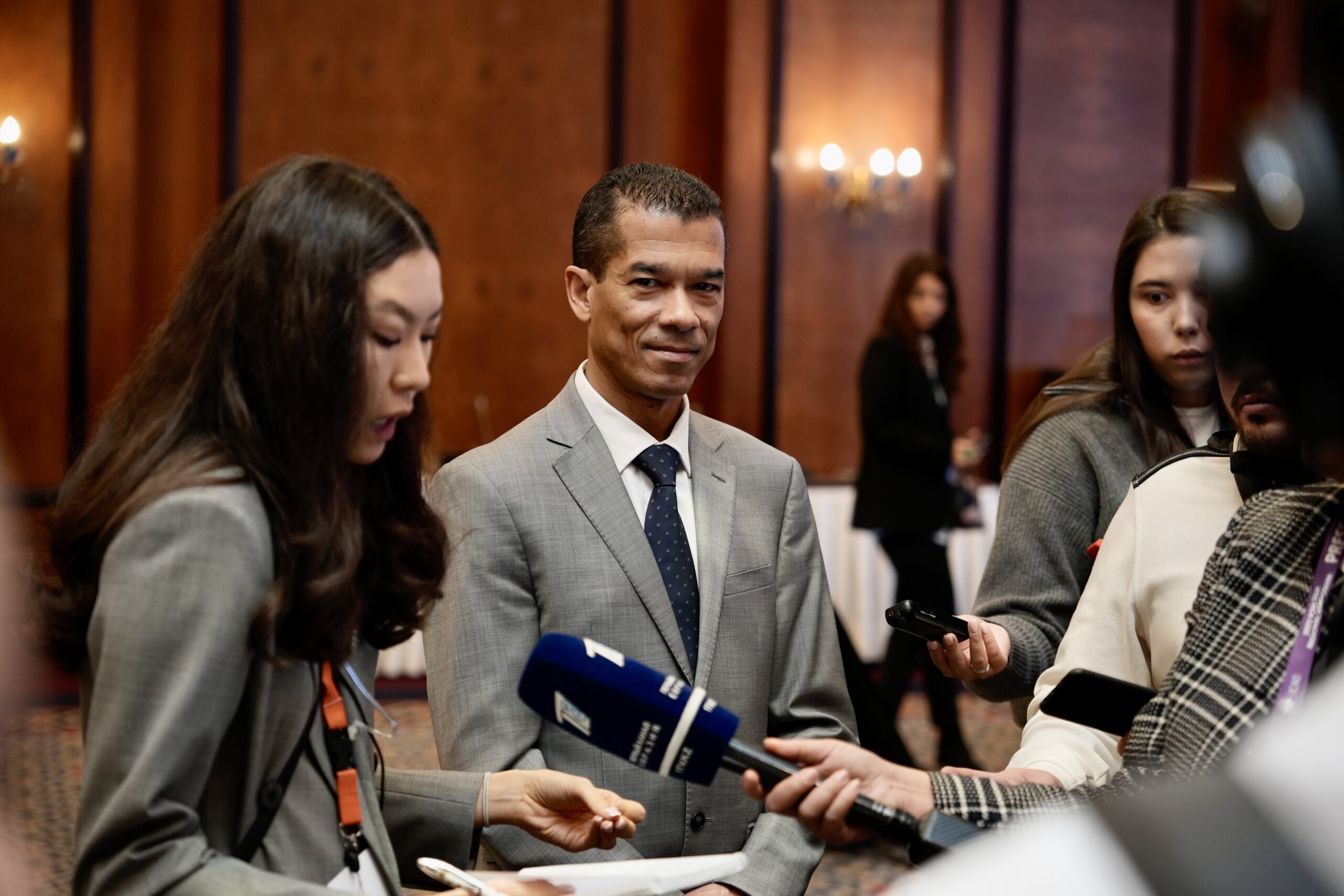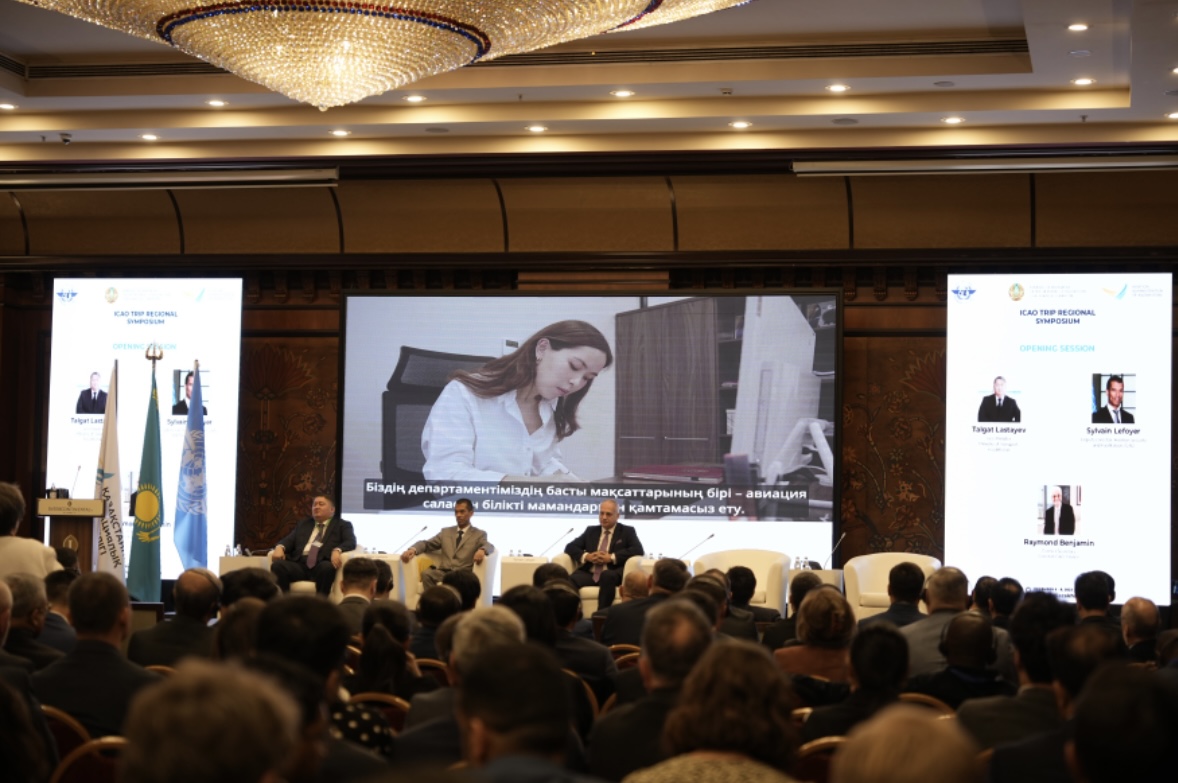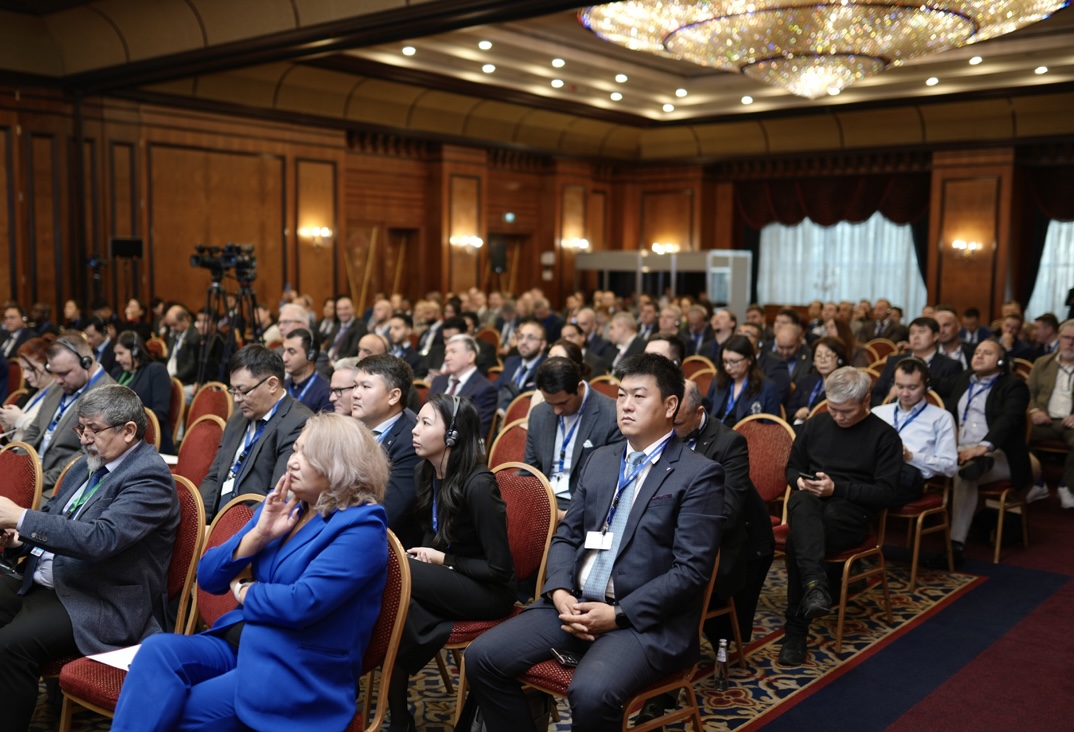ASTANA – The Regional Symposium of the International Civil Aviation Organization (ICAO) Traveller Identification Programme (TRIP) kicked off in Almaty on Dec. 6, reported the ICAO press service. For the first time, Central Asia hosts a large-scale event in the global aviation industry.

Deputy Director for Aviation Security and Facilitation at ICAO Sylvain Lefoyer. Photo credit: ICAO.
More than 280 participants from 30 countries gathered in Kazakhstan to address global cooperation in international civil aviation.
The three-day program, which will last until Dec. 8, serves as a platform for international civil aviation organizations to strengthen their response to the challenges posed by passenger identification.
“Border control and identity management are central to today’s global security and facilitation agenda,” said Deputy Director for Aviation Security and Facilitation at ICAO Sylvain Lefoyer.

Photo credit: ICAO.
“As a rule, cross-border criminal networks use fake travel documents and personal data. Although effective border and identification control alone cannot eliminate cross-border crime and terrorism, it can significantly reduce risks and offer a powerful tool to mitigate and counter such threats,” he added.
Ten panel sessions covered the five key elements of the ICAO TRIP Strategy – robust evidence of identity processes, machine readable travel document (MRTD) standards, specifications and best practices, secure travel document issuance, as well as information sharing technologies in addition to health proof issuance and validation.
For Kazakhstan, this is an opportunity to integrate the ICAO TRIP Strategy into the national policy, showcasing its openness to cooperation.

Photo credit: ICAO.
“To help the Central Asian states solve the problems, the symposium will address the security aspects of travel documents. The best cases will be considered on the example of national programs,” added Lefoyer.
The participants raised the importance of border control to combat terrorism per the United Nations Security Council (UNSC) resolutions, as well as the discussions on resolving border integrity and border control management challenges, including the implementation of Advanced Passenger Information (API) systems.
Government officials, according to Lefoyer, will have a better understanding of the activities conducted by the ICAO Technical Advisory Group (TAG), the working groups, such as the New Technologies Working Group (NTWG) and the Implementation Working Group and Capacity Building (ICBWG).
The discourse also promoted the regulatory environment, established by Annex 9 (Facilitation) to the Convention on International Civil Aviation. The document is also known as the Chicago Convention, which is composed of 19 annexes containing the basic standards and recommended practices (SARPs) of international civil aviation.
“The promotion of Annex 9 is very important for ICAO and its international and national partners, including the International Organization for Migration (IOM),” said IOM Coordinator for Central Asia Zeynal Hajiyev.
“IOM and the Kazakh aviation authorities agreed to work on solving open problems of immigration and border management to maintain a delicate balance between facilitating cross-border movements, maintaining border security, and protecting the rights of migrants,” said Hajiyev.
The collaboration between the decision-makers in the civil aviation industry will help streamline immigration and border control procedures through the introduction of advanced technologies and the adoption of best global practices.

